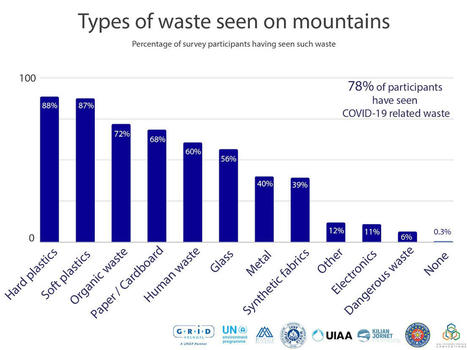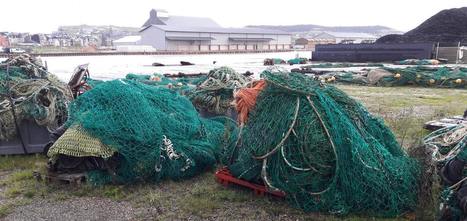Hard and soft plastics are the most common types of waste encountered at altitude by mountaineers, the first survey of its kind has found — with two thirds of mountaineers spotting litter most or every time they set foot on a mountain.While much attention in recent years has gone to the impact of waste – including plastic waste - in the world´s oceans, pollution in mountain regions has rarely made the headlines.A new global survey, led by Björn Alfthan and Laurent Fouinat from GRID-Arendal, sought the voices of mountain guides, mountaineers and other mountain enthusiasts to shed light on the extent and nature of waste pollution in the mountains.
Research and publish the best content.
Get Started for FREE
Sign up with Facebook Sign up with X
I don't have a Facebook or a X account
Already have an account: Login
Revue de presse et du net par le Pôle de partage des connaissances S&T de l'Office français de la biodiversité
Curated by
DocBiodiv
 Your new post is loading... Your new post is loading...
 Your new post is loading... Your new post is loading...
|
|














via BRS Conventions @brsmeas "78% of respondents have seen COVID19 related waste."